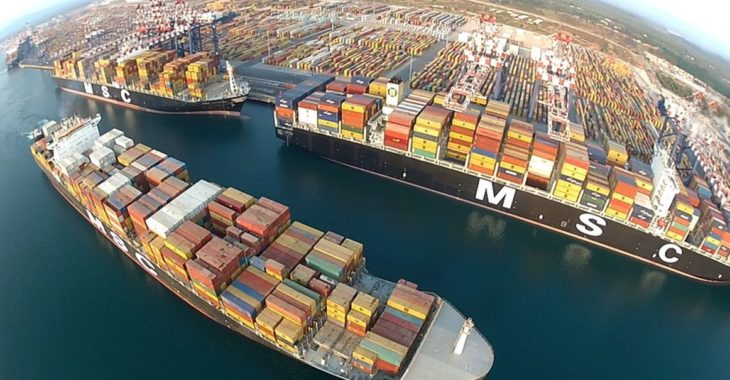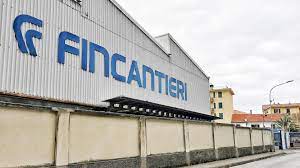Il percorso formativo, della durata di tre giorni, rientra all’interno del progetto dell’Accademia finanziato dalla Commissione europea “Common Maritime Education Standards in the West Mediterranean” ed è stato realizzato anche grazie alla collaborazione del Cetena (Centro per gli studi di Tecnica Navale), società del Gruppo Fincantieri specializzata nella ricerca e nella consulenza in ambito maritime.
Oggi un attacco informatico può generare gravi conseguenze operative e finanziarie per un’organizzazione, ma quando l’obiettivo delle incursioni è il settore marittimo potrebbero verificarsi pesanti ripercussioni sulla sicurezza del personale di bordo, la salvaguardia dell’ambiente e l’affidabilità economico-finanziaria dei trasporti via mare.
Scopo del corso, articolato in sessioni teoriche alternate a simulazioni pratiche, è stato dunque sviluppare le capacità analitiche dei partecipanti per aiutarli a riconoscere e gestire alcuni incidenti informatici che possono verificarsi sulle infrastrutture digitali delle navi.
Le principali tematiche affrontate sono state il ruolo e l’importanza dei sistemi digitali che equipaggiano le navi moderne, il panorama delle minacce informatiche che interessano i sistemi di bordo e le potenziali conseguenze per il personale, le attuali normative che guidano la disciplina informatica per il settore marittimo, i principali modelli di attacco.
Grazie al Full Bridge Simulator del Cetena gli ufficiali hanno anche potuto applicare sul campo le pratiche sicure da adottare per ridurre il verificarsi di incidenti informatici e sviluppare la capacità di identificare e reagire a un incidente informatico che impatti i sistemi di plancia.
Daniele Francesco Alì, Chief Information Security Officer di Fincantieri nonché amministratore delegato di E-phors, ha al riguardo dichiarato:
«L’attenzione alla cybersecurity da parte di Fincantieri negli ultimi anni si è progressivamente intensificata, in risposta alla sempre maggiore complessità e frequenza con cui gli attacchi cyber vengono ormai condotti verso aziende di valenza strategica nazionale e internazionale. La sofisticazione di tali minacce rende sempre più necessario il costante adeguamento delle difese aziendali e dei processi di salvaguardia del patrimonio informatico come elemento ulteriore di tutela del patrimonio industriale e della competitività di mercato. Per questo motivo Fincantieri è determinata a specializzarsi ulteriormente nell’analisi e gestione dei rischi cyber sui prodotti della navalmeccanica e, più in generale, su tutto il mondo maritime».
Paola Vidotto, direttrice dell’Accademia italiana della marina mercantile, ha altresì dichiarato:
«Tramite IMSSEA, il nostro dipartimento internazionale che collabora direttamente con IMO, abbiamo deciso di esplorare il tema della cybersecurity nel mondo marittimo, consci che si tratta di una materia dalla crescente imprescindibilità e che dunque richiede una risposta efficace e avanzata dal punto di vista del training per il personale di bordo. La nostra innovazione rispetto all’offerta di corsi reperibile sul mercato è l’integrazione della didattica all’interno di scenari riprodotti all’interno di un simulatore. Il corso sperimentale ha ottenuto buoni risultati e ci attendiamo in breve tempo una sua validazione dall’Unione europea e, auspicabilmente, anche da IMO, così da offrire alla comunità marittima un’occasione di training d’eccellenza, oltre che pienamente conforme agli standard».
* * *
L’Accademia Italiana della marina mercantile nasce nel 2005 con lo scopo di offrire alta formazione e training in ambito marittimo e viene riconosciuta come Fondazione ITS nel 2011 con la denominazione di Fondazione Istituto tecnico superiore per la mobilità sostenibile – Settori trasporti marittimi e pesca.
È un’istituzione pubblica che rilascia titoli del Ministero dell’Istruzione, dell’Università e della Ricerca nell’ambito dell’Istruzione terziaria non universitaria, realizzando le proprie attività attraverso finanziamenti pubblici e privati e senza finalità lucrative.
La sua mission consiste nell’erogare una formazione specialistica mirata verso occupazioni ad alto contenuto professionale e tecnologico, sulla base dei fabbisogni delle imprese dei settori interessati e in particolare nelle aree strategiche del marittimo e della logistica. La collaborazione col mondo del lavoro consente di garantire alti livelli occupazionali, con percentuali di occupati fra coloro che frequentano i corsi superiori all’80 per cento.
L’Accademia sviluppa inoltre altre attività, a favore delle imprese del cluster marittimo, sia nel campo della formazione, della progettazione, degli studi e delle ricerche, con finanziamenti sia pubblici che privati. Nel 2008 è stata avviata la Sezione Internazionale dell’Accademia attraverso IMSSEA (International Maritime, Safety, Security & Environment Academy), mediante un accordo bilaterale tra il Ministero degli Affari esteri e l’IMO di Londra.
Nel 2016 viene aperta la nuova sede operativa di Arenzano (Genova) e nel 2017 quella di Lavagna (Genova). Le due sedi sono le prime strutture in Italia ad essere dedicate esclusivamente alla formazione di tecnici superiori professionisti dell’hôtellerie di bordo e di figure specializzate nelle attività di accoglienza sulle navi da crociera e di trasporto passeggeri.
Fincantieri and the Italian Shipping Academy to train together officers on cybersecurity. Trieste, February 8, 2021 – Fincantieri, through its subsidiary E-phors, specialized in providing cybersecurity services and products, has recently provided a pivotal training course in partnership with the Italian Shipping Academy, aimed at introducing deck officers to the basics of cybersecurity.
The three-day training course is part of the Academy’s project – funded by the European Commission Common Maritime Education Standards in the West Mediterranean – and it has also been carried out thanks to the cooperation of Cetena (study centre in the maritime field), a company part of the Fincantieri Group, specialized in research and consultancy in the maritime field.
Today, a cyber attack may create serious operational and financial consequences for an organization. When the target of the attack is the maritime sector, the results could severely jeopardize the safety of the crew, the environmental protection and the economic and financial reliability of sea transport.
Hence, the goal of the course – made up of theory lessons together with practical simulations – was to develop the analytical skills of the participants so to help them recognize and manage some cyber incidents that may happen on the digital infrastructure of ships.
The main topics discussed during the course were the role and importance of digital systems of modern ships, the landscape of cyber threats affecting on board systems and the potential consequences for staff, the current regulations driving cyber discipline for the maritime sector, and the main attack patterns. Thanks to the Full Bridge Simulator of Cetena, the officers have had the chance to implement safe practices reducing cyber incidents and developed the ability to identify and react in case of cyber incidents impacting the bridge systems.
Daniele Francesco Alì, Chief Information Security Officer of Fincantieri and CEO of E-phors, stated:
«Fincantieri attention to cybersecurity has progressively been intensified in the recent years, as a reaction to the increasing complexity and frequency of cyber-attacks today carried out against strategic national and international companies. The sophistication of cyber threats requires to constantly update corporate defense, as well as the process of preserving IT assets, as an additional element of protecting industrial heritage and market competitiveness. For this reason, the Group is determined to further specialize on the analysis and management of cyber risks related to shipbuilding products and more in general to all the maritime field».
Paola Vidotto, Italian Shipping Academy Foundation General Director, declared:
«Through IMSSEA, our international department which acts in close cooperation with the IMO, we decided to explore the maritime cybersecurity, being aware that it is a subject increasingly essential that requires an advanced and effective response by the crew training point of view. Our innovation, compared to what can be found in the market, is the didactical integration with scenarios replicated inside a simulator. The experimental course obtained good results a we are expecting in the short term a validation by the European Union and, hopefully, by the IMO too, so that we will be able to offer to the maritime community a chance for a training of excellence, other than fully compliant to the standards».
* * *
The Italian Shipping Academy has been founded in 2005 with the aim to provide high maritime education and training and it has been recognized as ITS Foundation in 2011, with the denomination of Fondazione Istituto tecnico superiore per la mobilità sostenibile – Settori trasporti marittimi e pesca.
It is a public institution that releases qualifications recognized by the Italian Ministry of Education in the field of the tertiary education, realizing its activities through public and private financing and with a non-profit setting.
The Academy’s mission is to deliver a specialized education aiming to create occupation with high professional and technological contents, on the basis of needs and demands of the companies of the involved sector and in particular in the strategic areas of the maritime economy and logistics. The cooperation with the labour world allows to ensure high occupational levels, with percentages of employees among course attendants higher than 80%.
Moreover the Academy develops other activities, with public and private fundings. In 2008 an international department has been inaugurated through IMSSEA (International Maritime Safety Security Environment Academy) following a bilateral agreement between the Italian Ministry of Foreign Affairs and the IMO.
In 2016 a new operational Academy’s seat opened in Arenzano (Genoa) and in 2017 another one in Lavagna (Genoa). The two seats are the first structures in Italy to be exclusively dedicated to the education of upper technicians and professionals on the on-board hôtellerie and on other specialized figures related to the welcoming on cruise and passenger ships.







